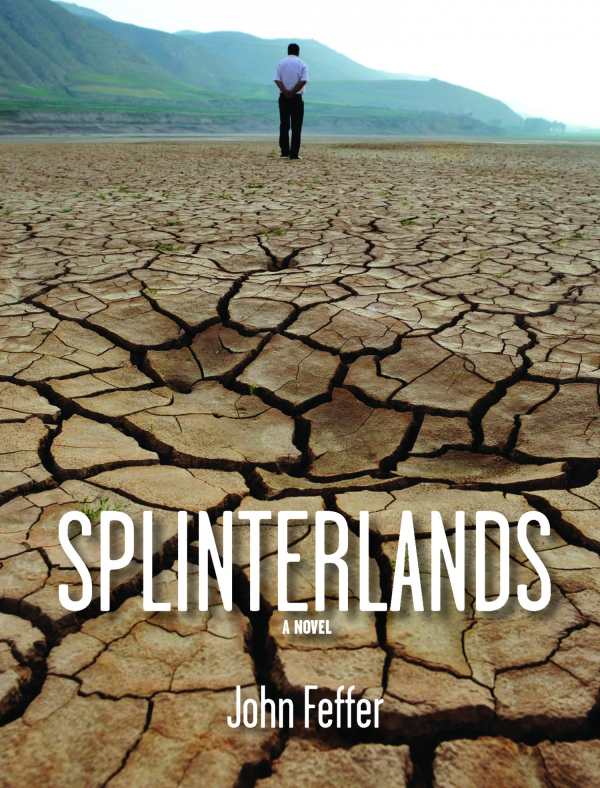Splinterlands
A wild ride through a bleak future casts a harsh, thought-provoking light on today’s decisions.
John Feffer paints the gritty portrait of an all-too-believable future dystopia in his novel Splinterlands.
Feffer brings a unique blend of experience and insight to what what might first seem a common-variety, cautionary science-fiction tale. Serving as director of the Foreign Policy in Focus project at the Institute for Policy Studies, Feffer doesn’t just imagine the world of 2050, he extrapolates from his encyclopedic knowledge of the state of affairs in 2016, incorporating political, technological, and social trends to create a vivid and convincing world full of mistakes that, in real-life 2016, mostly have yet to happen.
Feffer leads this tour of the world through the eyes of the fictional Julian West, a scientist and author of the hugely impactful book Splinterlands. While a bit confusing at first, it’s an artful touch, and, combined with footnotes by a separate narrator that often cast doubts on West’s version of events, the result is a book that reads like an engaging mystery that just happens to take place in the future.
West seeks out his family members in Europe, China, Africa, and a commune in Vermont, looking for some form of reconciliation for past wrongs, but with a hidden agenda that reveals itself only in the final few pages of the book.
At times, West’s excursions, undertaken through virtual reality, can seem less interesting than the ideas and fictional causes of the situations he steps into. But Feffer is usually able to weave the drama, the projections, and the imaginings into a cohesive whole: a world where the European Union no longer exists, and CRISPR genome-editing technology plays a prominent role.
Splinterlands serves as entertainment, but also as provocation; toward the end of the book, West muses:
Thirty-five years and endless catastrophes later, on a poorer, bleaker, less hospitable planet, it’s clear that we just weren’t paying sufficient attention.
Feffer’s book is a wild ride through a bleak future, casting a harsh, thought-provoking light on that future’s modern-day roots.
Reviewed by
Peter Dabbene
Disclosure: This article is not an endorsement, but a review. The publisher of this book provided free copies of the book to have their book reviewed by a professional reviewer. No fee was paid by the publisher for this review. Foreword Reviews only recommends books that we love. Foreword Magazine, Inc. is disclosing this in accordance with the Federal Trade Commission’s 16 CFR, Part 255.

